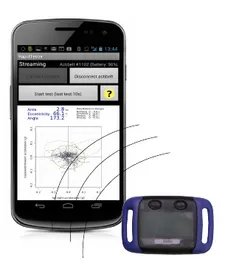| Dozent: | Martin Daumer (e-mail: daumer@slcmsr.org) |
| Assistent: | |
| Zielgruppe: | Master (Fachliche Ergänzung) |
| ECTS: | 6 |
| Umfang: | 2/0/0 (SWS Vorlesung/Übung/Praktikum) |
| Turnus: | Sommersemester/Wintersemester |
| Anmeldung: | TUMonline |
| Zeit & Ort: | Vorlesung: Dienstag 10:45 - 12:15, Online/Translatum (further information in moodle) |
| Beginn: | First lecture will be on Tuesday, 24.10.2023, 10.45 - 12:15. Please also attend the first lecture in case you will have a conflict with other lectures. Within this first lecture we will try to find the best timeslot for all course partcipants. |
Course Description
Computational medicine is a new scientific field in the intersection between mathematics, physics, biostatistics, computer science, electronics, biomedical engineering and medicine. In this lecture we will focus on actual clinical applications of computational medicine using examples from areas like multiple sclerosis, obstetrics, coronary artery disease and sport medicine.
After a short introduction and description about potential and current topics of interest in the medical clinical field the students work in small groups under the guidance of tutors/lecturers/external experts on self-selected projects in the area of "computational medicine". Students are encouraged to build prototypes using the modern technologies available -- sensors, webservices, smartphones, etc -- with the aim to provide solutions to current shortfalls in the clinical practice or in the sports science field.
Project topics
Topics of "Clinical Applications of Computational Medicine" are:
1 "Mobile accelerometry" ("Natural Running", "Move Your Heath", "Fall Risk Prediction", "Fall detection")
2 "Fetal Heart Monitoring"
3 "Evidence Based Decision Support in Multiple Sclerosis"
4 "Validation in large Biomedical Databases"
How the lecture works: The "agile learning" concept

The "agile learning" concept is analogous to the "agile computing" concept in some respects and can form a very valuable alternative to traditional knowledge transfer strategies.
We divide "agile learning" within one semester in the following phases:
-
"Warm up phase" - Presentation of the topic area and the didactic concept, the basic values and goals, mutual understanding
-
"Phase-matching" - Joint outline of project ideas and the creation of interdisciplinary project groups including tutors . Use of current interests and hot topics from a research and company perspective.
-
"Project phase" - working on the project with an "agile" approach - supported by tutors, in cooperation with internal / external research / business partners or invited lectures according to the needs.
-
"Interim presentation and review" - as in "agile computing" the early presentation of prototypes is crucial to obtain feedback and take possible corrective actions if needed.
-
"Final Sprint"
-
"Symposium: final public presentation with external guests"
-
"Dissemination of results and activities": Submission of abstracts / posters / papers at an academic conference / symposium or publication of the results on an external website. Use of the results for administration & advertising of interactive websites, e.g., for health insurance
Final exam
There is no final examination within this course. The results of the projects will be presented and discussed within the group as well as with invited guests. A comprehensive written report based on the presentation has to be provided. This report as well as the quality of presentation and discussion of the results are the basis for grading.
Example of projects from previous semesters
-
Implementation of Move Your Health® concept via website www.your724.com By Florian Groß and Patrick Burger
-
Invitation- Presentations CACOM Sommersemester 2012
-
Invitation- Presentations CACOM Wintersemester 2012-13
-
Invitation- Presentations CACOM Sommersemester 2013
-
1st Winter Symposium of "The Human Motion Project" Feb. 2014
